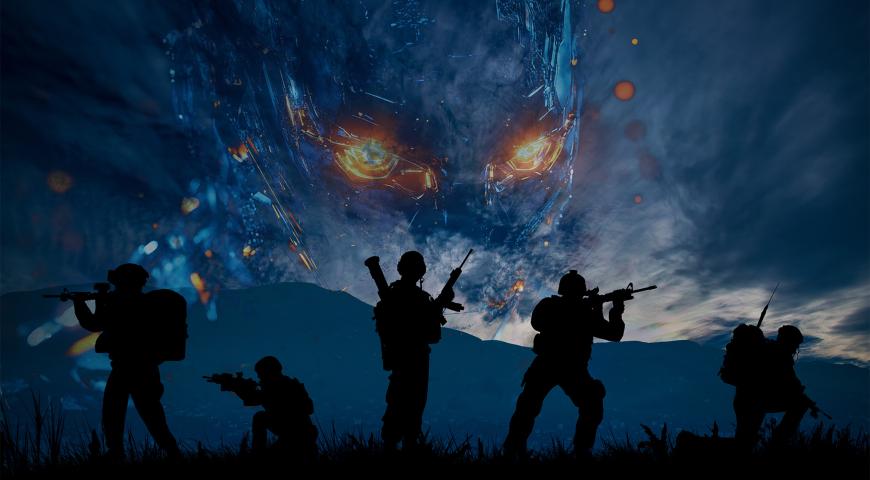Beijing is closely watching the West’s response to the 24 February 2022 Russian invasion of Ukraine for its own plans regarding the eventual subjugation of the independent country of Taiwan. The West’s desultory response to the crisis has revealed plain vulnerabilities and false assumptions about what the West would likely do in the event of an amphibious invasion or blockade of Taiwan by mainland China. Lying just off the coast of China, Taiwan is far deeper into the Chinese geographic sphere of influence, and air bases and ports, than Ukraine is to Russia, and far farther from friendly states that it depends on for its energy, food, and trade.
First lesson. Democracies will be negligently slow in their political mobilisation against an external threat, unless they are directly attacked. It is not unusual for the business-driven, democratic political leaderships, focused on short-term legislative survival, to either mobilise or respond to public sentiment, in a delayed manner. The build-up of Imperial Germany’s navy, the rise of Adolf Hitler, the dismantling of post-Second World War democracies in Eastern and Central Europe by Joseph Stalin, are all vivid indictments of missed opportunities to inexpensively overturn injustices that were either unprecedentedly bloody to confront, or whose terrible consequences would persist over several generations.
Failed international legalist efforts at achieving last-minute peace—typically too late because the decision for war had already been made—are well described in Barbara Tuchman’s book, The Guns of August, which covers the lead-up to the First World War, and William Shirer’s Rise and Fall of the Third Reich, which describes desperate last-minute efforts to avoid the Second World War. There was a reaction as early as the 1930s to the delusion of relying on a liberal human rights agenda to stop war, manifested in a new approach to international relations termed realism. This focus on power supplanted the idealistic and legalistic lens on international relations that failed so dramatically to either predict, explain, or organise a response to the rise to power of the German Chancellor, and later Fuhrer, Adolf Hitler. Accusing the Russians of genocide, tabulating war crimes, and condemning the use of cluster bombs, hardens positions, imperils attempts at negotiation, and lengthens wars, by formalising legal instruments of revenge. Pursuing human rights revenge is also a moral hazard against focusing on efforts for deterrence and defence.
Second lesson. Local democracies will prioritise avoiding economic shocks and local geopolitics over the defence of the democratic community. Russia’s invasion of Ukraine is funded directly by Germany and Italy, absent the funds for which Russian President Vladimir Putin’s entire domestic pay-off pyramid, with which he funds his narrow electorate through the oligarchs, would collapse. At the time of this writing, there are in effect only partial sanctions, with a rerouting of Russian-Western commerce through third party neutrals, particularly of computer chips and other hi-tech, dual-use military components necessary for Russia to continue to manufacture arms it will use to consolidate its gains in Ukraine. It takes only a small minority to manipulate and trick a country into war, and as few to short-circuit a government’s attempts at national defence, in order to squeeze out one more quarter of corporate profits before finally getting to the business of protecting the country. The gas flowing from Russia into Germany is almost literally Ukrainian blood. South Korea, which has close commercial ties with China, has made it very clear that they will make no contribution to the defence of Taiwan. India remains strictly neutral despite its role in the Quad. Key states like Indonesia, and even the Philippines, whose territories would be crucial in a war over Taiwan, have thus far prioritised attracting Chinese investments over preparing their defences.
Third lesson. Western media and publics micro-aggress the characters of dictators by insinuating their mental illness, their psychopathy, and their diversionary behaviour. However, consistent attempts to produce the personality profiles of Joseph Stalin, Adolf Hitler, Mao Zedong, and Saddam Hussein have shown that none of these men suffered any of the illnesses described in the American Diagnostic and Statistical Manual of Mental Disorders, and instead have demonstrated that they benefit from high IQs, and even higher Emotional Quotients. Some, such as Joseph Stalin, Mao Zedong, and Saddam Hussein, would use their higher EQs to torment, to the point of suicide and death, their immediate entourage.
The reason Putin and Xi Jinping are beyond analysis is that their long rise to political dominance was conditional on them being able precisely to evade diagnosis. These are ruthless, remorseless and cruel manipulators. There is a well known account of Napoleon Bonaparte, recorded by multiple witnesses, in which he is looking into, but coldly past, the retreat of the remnants of the French army over a bridge of human corpses. Make no mistake, these men are more intelligent than the gaggle of lawyers, business owners and nerdy political entrepreneurs that wiggle their way into politics in democracies. Of course, some of these glory-seekers are less intelligent than others, as Putin has clearly surrounded himself with sycophantic, bottom-of-the-class generals whose 1960s-style army is struggling to maintain even an orderly routine road march. Even Argentina, burdened with its mañana proclivities, showed more courageous flair and determination.
Fourth lesson. Aggressors will ruthlessly exploit the political and ideological cleavages in the societies of their adversaries. Both Germany and Japan (and Italy and Hungary) are fearful of their militarist pasts, and still active right-wing elements of their societies, because of the insecurity it could generate in their neighbours. No one wants a German or Japanese nuclear arsenal, least of all most Germans and Japanese (although Bonn had access to a wide array of dual-key US nuclear weapons during the Cold War). This false association between militarism and defence delays military preparations, cooperation, mobilisation, and even defence.
Fifth lesson. Democratic publics are terrified of nuclear war, and succumb to the self-weakening and specious idea that nuclear weapons are unusable. Any democratic state that possesses nuclear weapons that does not train to use them to inflict automatic and horrendous vengeful destruction on an opponent that dares use it against them, should immediately decommission them, because their bluff will easily be noticed by an enemy dictator.
In a brinkmanship crisis involving two major nuclear-armed powers, because nuclear weapons represent unlimited and unstoppable power, the crisis outcome usually settles on the relative balance of interests. Between authoritarian and democratic states, that dispute settles on the relative commitment of the protection of a historical and geographic sphere of influence, versus the democratic defence of the principle of popular self-determination, wherein people choose their own leaders. As demonstrated by Putin’s threat to resort to nuclear weapons, and the West’s immediate backing down, this signals to Beijing that it should resort to a similar tactic of threatening a nuclear escalation as a way of deflecting the democratic military imperative of immediate military intervention.
Putin’s, and Xi Jinping’s, nuclear threats are hollow. Neither Putin nor Xi are ascetic risk-acceptees like Adolf Hitler, or enjoy war for its own sake like Bonaparte. Xi heads a factional guanxi, much like Putin balances his circus and Byzantine ‘Kremlin Towers’, which are essentially power and wealth distributive networks. Both men have extended families, which they have tried to shield from politics. Neither has identified successors, because their positions are not sufficiently strong to offset a new political power centre. Both of these men are fighting the youthful tide of change in their own societies, and erroneously blame George Soros. These are not men who have amassed sufficient personal power to be able to command a large-scale nuclear attack.
There are three obvious policy implications to shore up Taiwanese deterrence. First, Western democracies, including in particular the United States, Japan, Australia, Canada, and the United Kingdom, with contributions in that relative rank order, should deploy land and air units on the scale of brigades and battalions into Taiwan. This neutralises any nuclear threat from China. Second, democratic states should prepare a list of explicit and robust economic sanctions that will be automatically enacted in the event of a crisis, so that Beijing is entirely clear about the implications of any military action against Taiwan. The abject failure of sanctions in the case of Russia, caused by the critical dependence of Germany on Russian energy, has less of a parallel in the case of Chinese relations. However, democratic sanctions should also target and exclude from finance and trade any neutral state that continues trade with China. They should be given a clear us-or-them choice, with a stern warning that they may be subject to a naval blockade. Third, the moral hazard of assumed Western assistance led Ukraine to pursue a foolhardy policy of provocation towards Russia, and failure to make a proportionate effort to prepare for war. Whatever democratic coalition emerges to defend Taiwan, it must engage in serious dialogue, communicating clearly to the Taipei government that assistance in their defence will not be provided in the absence of a clear effort by Taipei to defend itself.
Biography
Dr. Julian Spencer-Churchill is associate professor of international relations at Concordia University, author of Militarization and War (2007), and of Strategic Nuclear Sharing (2014), and former Operations Officer, 3 Field Engineer Regiment. He has published extensively on security issues and arms control, and completed research contracts at the Office of Treaty Verification at the Office of the Secretary of the Navy, and the then Ballistic Missile Defense Office (BMDO).
Defence Mastery
Social Mastery
Please let us know if you have discovered an issue with the content on this page.
Comments
Start the conversation by sharing your thoughts! Please login to comment. If you don't yet have an account registration is quick and easy.




